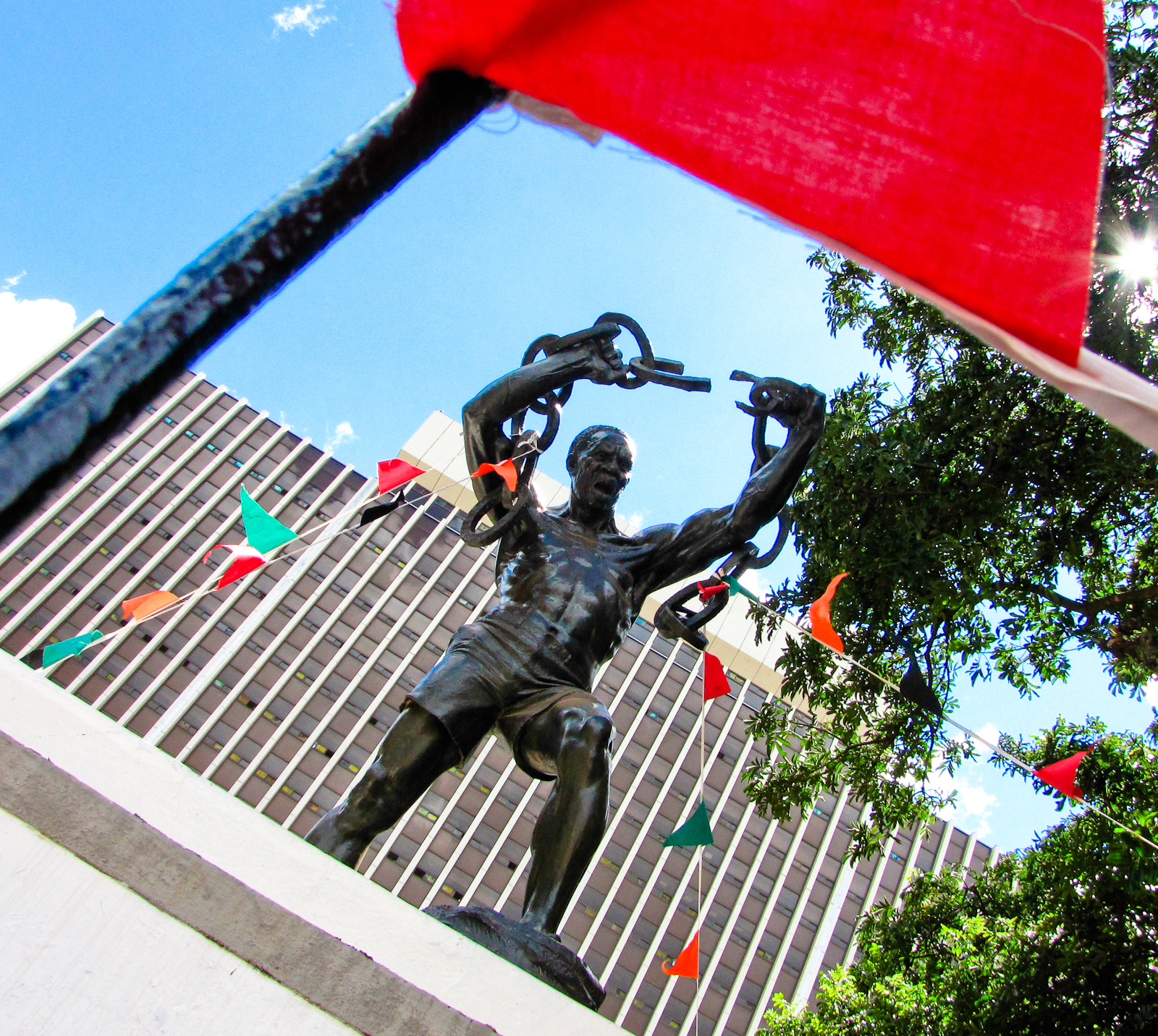Political situation A lot is expected of the new government
Freedom Statue in Lusaka, Zambia
Background
After gaining independence from the United Kingdom in 1964, Zambia was governed for many years by president and “founding father” Kenneth Kaunda. In 1990, the Movement for Multi-Party Democracy (MMD) ousted Kaunda, marking the end of the one-party system. The elections in 2011 were won by the opposition Patriotic Front (PF). It remained in power for many years, with Edgar Lungu taking over as its leader in 2015.
The Lungu government increasingly limited the space for civil society, the media, opposition parties and human rights advocates. Corruption spread, shaking public faith in the state. In 2022, the non-governmental organisation Transparency International ranked Zambia 116th out of 180 countries on its Corruption Perceptions Index.
The peaceful and democratic change of government in Zambia in August 2021 has resonated far beyond Zambia's borders. The media and civil society have since been enjoying greater freedom. Many civil society groups are applauding Zambia's new course; yet they are also urging President Hichilema to implement the goals he has set himself for democratic reforms, respect of human rights and anti-corruption more quickly and more comprehensively. Against this backdrop, it is all the more important that the BMZ agreed with the Zambian government at the government negotiations in November 2022 to support it in realising important legislative reforms.
A lot is also expected of President Hichilema's new government. The population is hoping to see an end to the economic crisis, the creation of new jobs and a reduction in the cost of living, which has recently risen sharply.
Development goals
In its “Vision 2030 (External link)”, the Zambian government has defined its goal as making Zambia a “prosperous middle-income country” by 2030. It is working towards this long-term goal on the basis of five-year plans. In the eighth National Development Plan (2022 to 2026) the government sets out the following goals: reduce poverty and vulnerability; bring the financial deficit and inflation down; diversify the economy, create jobs and make economic growth inclusive, and create a conducive governance environment.
The Plan is intended to contribute to achieving the development goals of the United Nations 2030 Agenda and the African Union's Agenda 2063. However, there are weaknesses in the implementation, as regards data collection, the integration of existing data in planning strategies and transparent budget planning and management – areas where the current government wants to introduce improvements.
As at: 30/10/2023
